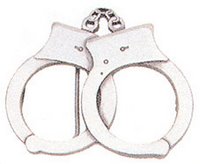 HR 4411 to ban internet gambling was voted on this afternoon. This big, steaming, pile of horse poop will probably go nowhere because it's unrealistic and frought with contradictions, but it's still a bit chilling from a privacy and freedom point of view.
HR 4411 to ban internet gambling was voted on this afternoon. This big, steaming, pile of horse poop will probably go nowhere because it's unrealistic and frought with contradictions, but it's still a bit chilling from a privacy and freedom point of view.From the New York Times:
Voting 317 to 93, the House approved a bill that would make it illegal for financial institutions or intermediaries to process payments to offshore casinos through bettors’ electronic funds, checks, debits and other e-wallet transactions. In addition, the bill updates the Wire Act of 1961, which forbade the transmission of betting over telephone lines, to specifically outlaw online gambling through any communication network. Criminal penalties would increase to a maximum of five years in prison, from two years.
It might be easier to round up and deport 11 million illegal immigrants than to arrest, charge, convict, and jail a single American citizen for playing poker online.
Its chances in the Senate for passage this year are unclear, given the Senate’s crowded work schedule and limited amount of time in session before the November elections.
...
The House bill spares Powerball and some other games, for example, and preserves states’ rights to regulate gambling individually.
One of the arguments in favor of poker is that it is a game of skill. If you play optimally, you can come out ahead in the long-run. The lottery, on the other hand, is a tax at people who are BAD AT MATH. If I read the article correctly, they want to give an exemption to online lottery (Jack Abramoff's legacy).
So if someone is bad enough at math they will play the lottery online regularly and lose their money. They will also lose at online poker, but it would be illegal because the government isn't smart enough to figure out how to collect the vig.
Others considered the legislation an infringement on individual rights to privacy through mouse-clicking at home. Representative Barney Frank, Democrat of Massachusetts, contended that the measure was a form of Prohibition. As long as individuals were not harming anyone else, Mr. Frank argued, they should be free to spend their money as they choose.
Freedom, baby. That's what I'm talking about.
No comments:
Post a Comment